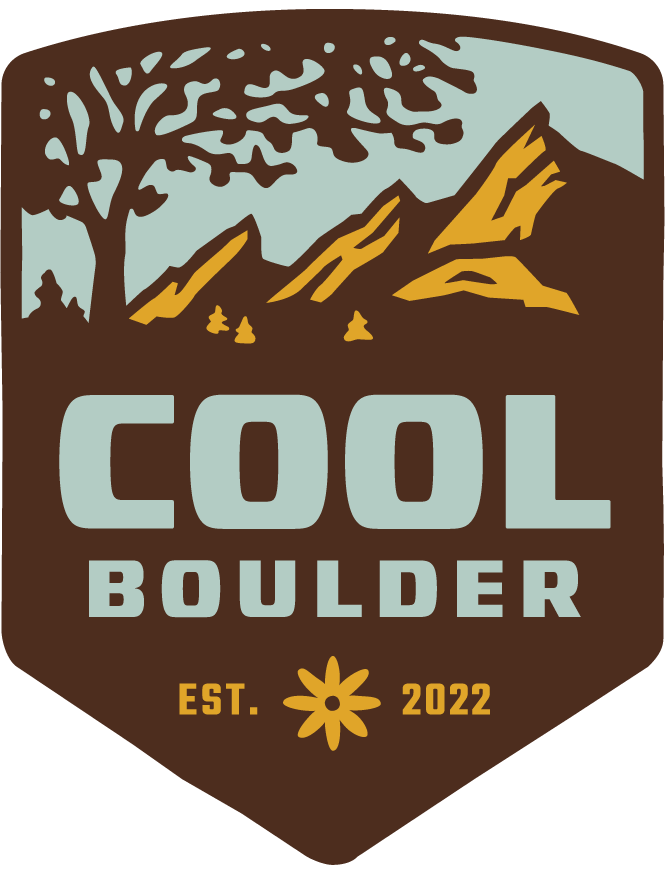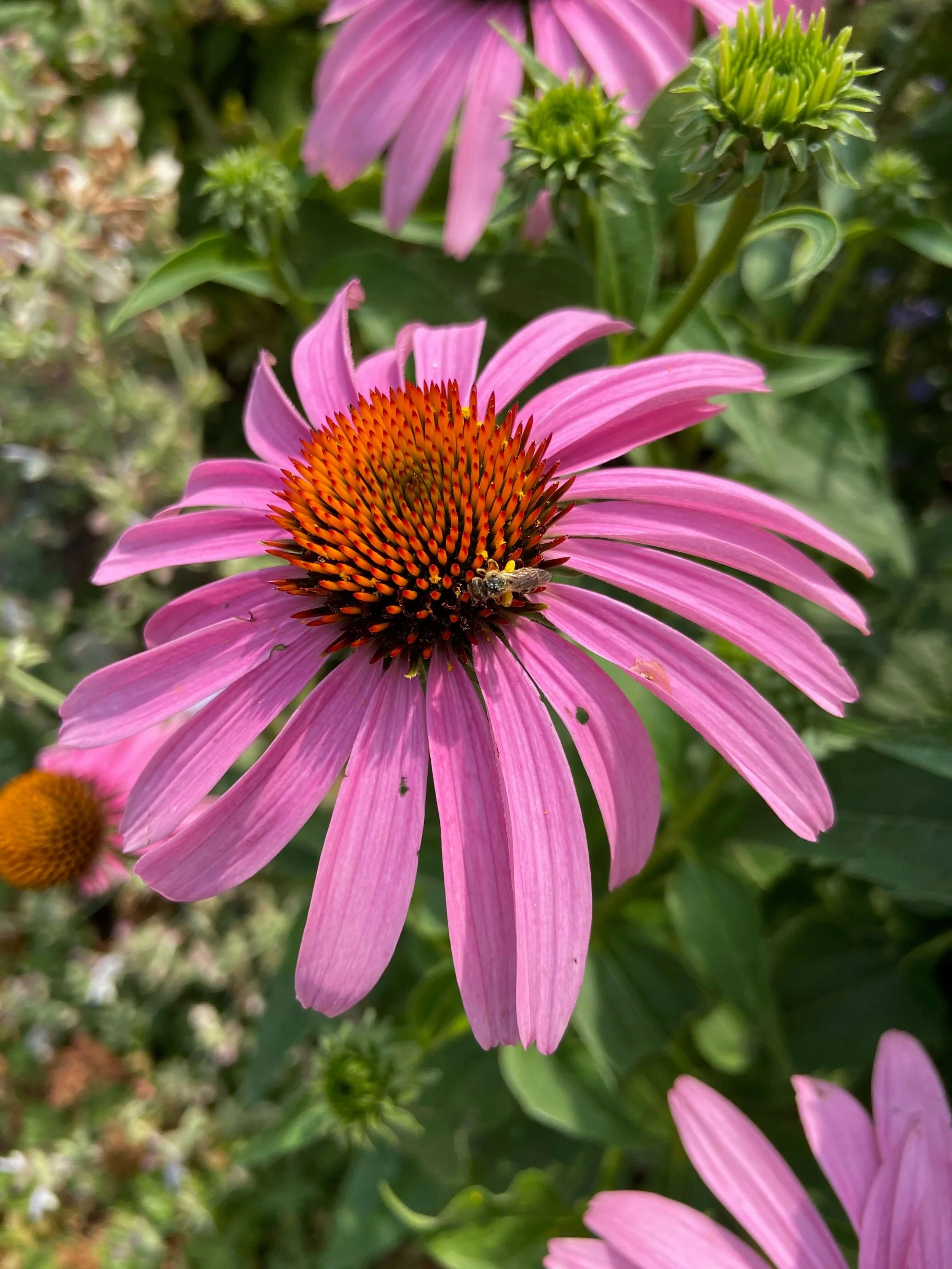Rewilding: Pollinator Pathways
Photo credit: Emily KenCairn
Join the Community to Create Native Plant Habitat and Pollinator Pathways
What is a pollinator pathway?
Pollinator pathways are pesticide-free contiguous habitats of predominantly native plants that provide forage and shelter to native insect and wildlife species. A pathway consists of a combination of different sized habitats, including small patches - flower beds in home gardens, public spaces and businesses, medians and roadsides - that can connect with the bigger habitats in parks or natural areas along creek corridors or open space.
Connected habitat is important in providing adequate food and access to a diversity of resources, as well as migration routes that facilitate movement to food, water and mates. As the climate warms, species that are able are shifting to cooler areas and corridors provide safe passage to new ranges.
Why are we losing pollinators?
Most people know that bees are in trouble. But it’s not only bees and other wild pollinators that are struggling. More than 40% of the worlds’ insects are in decline and a third are threatened with extinction. Insects are critical to life on earth. As insects decline, so do birds, amphibians and other animals that depend on them for food. A city filled with neat green lawns, manicured landscaping with showy flowers of ornamental plants from all over the world is what most people want and expect. However, these landscapes can be deserts for pollinators and other wildlife. We’ve stripped native grasslands and ecosystems from our cities to build roads, buildings and parking lots. And we’ve filled urban landscaped areas with non-native turf lawns, shrubs and plants that don’t feed or shelter native insects. Significant inputs are needed to keep landscaping alive where it didn’t evolve, including large amounts of water, synthetic fertilizers and pesticides that cause even more harm to native ecosystems.
Why does it matter?
Urban landscapes are degraded landscapes from an ecological perspective. Degraded landscapes are responsible for the loss of wild species, poor soil health and impaired ecosystem services. Land degradation is a major contributor to climate change. Not only do degraded lands create emissions from the destruction of natural systems, but the capacity to store water and carbon, and support biodiversity is greatly reduced.
What can we do?
It’s critically important to preserve and protect natural lands and transform agricultural systems that degrade land. But it’s equally important to rewild and re-landscape cities with native plants to support wild insects, birds and other life, conserve water and focus on building healthy soils. Native plants create biodiverse habitat that will attract and support insects and birds and counter the negative impacts of traditional landscaping, including pollution runoff to the creeks.
We need you
The city and its partners are working together to provide the knowledge, resources and community networks to rewild Boulder and support life-giving ecosystems. Our community needs your help to rewild and transform our landscaping. This transformation happens on many levels, from becoming aware of the importance of urban ecosystems and beginning to see landscaping through the needs of a tiny wild bee, to becoming a leader to create change. Please join us as we learn and grow together.
Photo credit: Emily KenCairn
Ways to Get Involved
Be A Friend of Pollinators
Learn and get involved at your own pace as a Friend of Pollinators. If you’re new to pollinators or native plant gardening you can access lots of information at https://BeeBoulder.org, which is regularly updated. We will also update this Cool Boulder Campaign website with workshops and classes to be offered this summer about native plant gardening, recognizing native pollinators and birds, growing plants to collect seed, propagating plants, learning to assess a site for ecosystem quality, guided hikes/walks through the city and/or open space to explore insects, birds in different habitats and more! Stay tuned to this site for volunteer opportunities for in-field experience and mini-trainings on different topics.
These events are currently being planned and a schedule will be available each month. You can mix and match to fit your schedule, explore your interests and be part of the Pollinator Pathway Community Team.
Pollinator Advocates Training
Are you interested in becoming a community leader to help Boulder create pollinator hubs and pathways? By becoming a Pollinator Advocate you will gain the training and hands-on experience you need to successfully rewild your residential space and beyond with colorful, beautiful pollinator garden ecosystems. There is a significant time commitment involved in becoming a Pollinator Advocate — learn more and apply now.
Photo credit: Shannon Harriman



